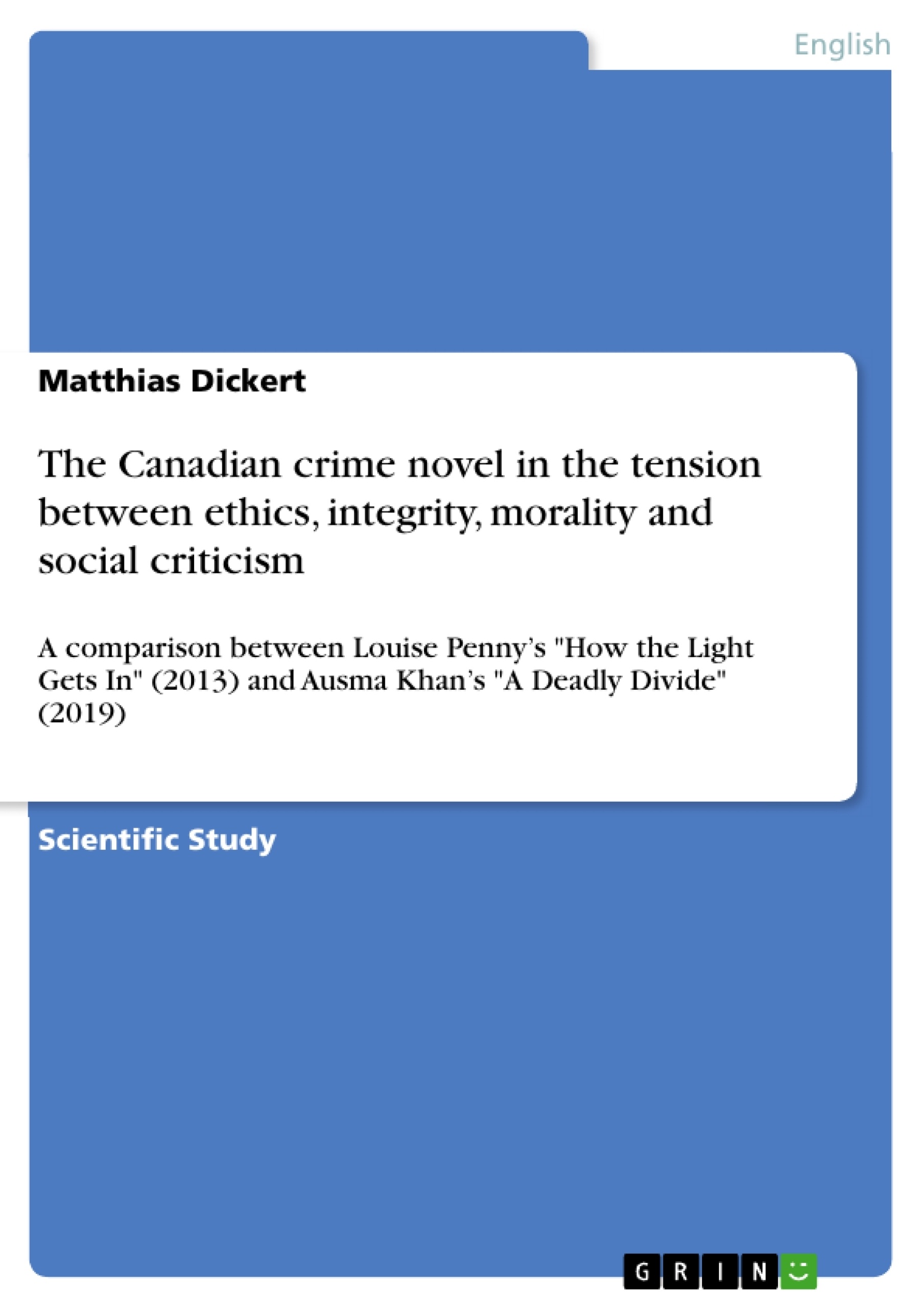Matters of ethics and morality have always had a fixed place in crime writing since solving cases like murders is embedded between decision making processes which are bound between good and bad. To focus and reflect ethic and moral decisions and to place them within the policeforce itself is, however, uncommon in crime writing since the policeforces represent the status quo of the state. Corrupt policemen or 'bad cops' are (still) the exception and to set good and bad policemen against each other is still some sort of taboo in this genre since good and bad are normally set between criminals and the police.
Both analysed novels hereby "How the Light Gets In" (2013) by Louise Penny and "A Deadly Divide" (2019) by Ausma Zehanat Khan, however, are concerned with this topic and show that contemporary Canadian crime writers do include these matters into their work.
Inhaltsverzeichnis (Table of Contents)
- Preface
- The Genre of the Detective Story
- The authors
- Structure and contents of How the Light Gets In (2013) and A Deadly Divide (2019)
- Conclusion
- Bibliography
Zielsetzung und Themenschwerpunkte (Objectives and Key Themes)
This essay investigates the role of ethics and morality within contemporary Canadian crime writing, specifically examining how the novels "How the Light Gets In" (2013) by Louise Penny and "A Deadly Divide" (2019) by Ausma Zehanat Khan explore these themes. The essay aims to demonstrate that these writers, through their compelling characters and intricate plots, integrate ethical considerations into the core of their narratives, challenging the traditional representation of police officers and crime within the genre.
- Ethical Decision-Making in Crime Fiction
- The Role of Police Officers in Society
- Intercultural Understanding and Social Justice
- Contemporary Canadian Society and its Challenges
- The Power of Literature to Reflect and Shape Moral Values
Zusammenfassung der Kapitel (Chapter Summaries)
The essay begins by exploring the history of Canadian literature, highlighting its evolution from a perceived inferiority complex to a vibrant reflection of national identity. The author argues that Canadian writers, like their counterparts worldwide, use literature as a mirror to reflect the complexities of society and as a map to navigate the landscapes of the mind. The essay then delves into the genre of the detective story, emphasizing its enduring appeal as a platform for examining moral dilemmas and social injustices.
Following this introduction, the essay focuses on the specific works of Louise Penny and Ausma Zehanat Khan. It examines the characters of Chief Inspectors Armand Gamache and Esa Khattak, highlighting their development as moral exemplars within the police force. The essay explores how these novels challenge traditional notions of law enforcement and delve into the personal and professional struggles of the characters as they navigate complex ethical issues.
Schlüsselwörter (Keywords)
This essay explores key concepts like ethics, morality, crime fiction, Canadian literature, intercultural learning, social criticism, fundamentalism, and the role of law enforcement in contemporary society. It examines the works of two contemporary Canadian crime writers, Louise Penny and Ausma Zehanat Khan, focusing on their characters, plots, and the overarching themes of justice, integrity, and social responsibility.
- Quote paper
- Dr. Matthias Dickert (Author), 2021, The Canadian crime novel in the tension between ethics, integrity, morality and social criticism, Munich, GRIN Verlag, https://www.hausarbeiten.de/document/994650


